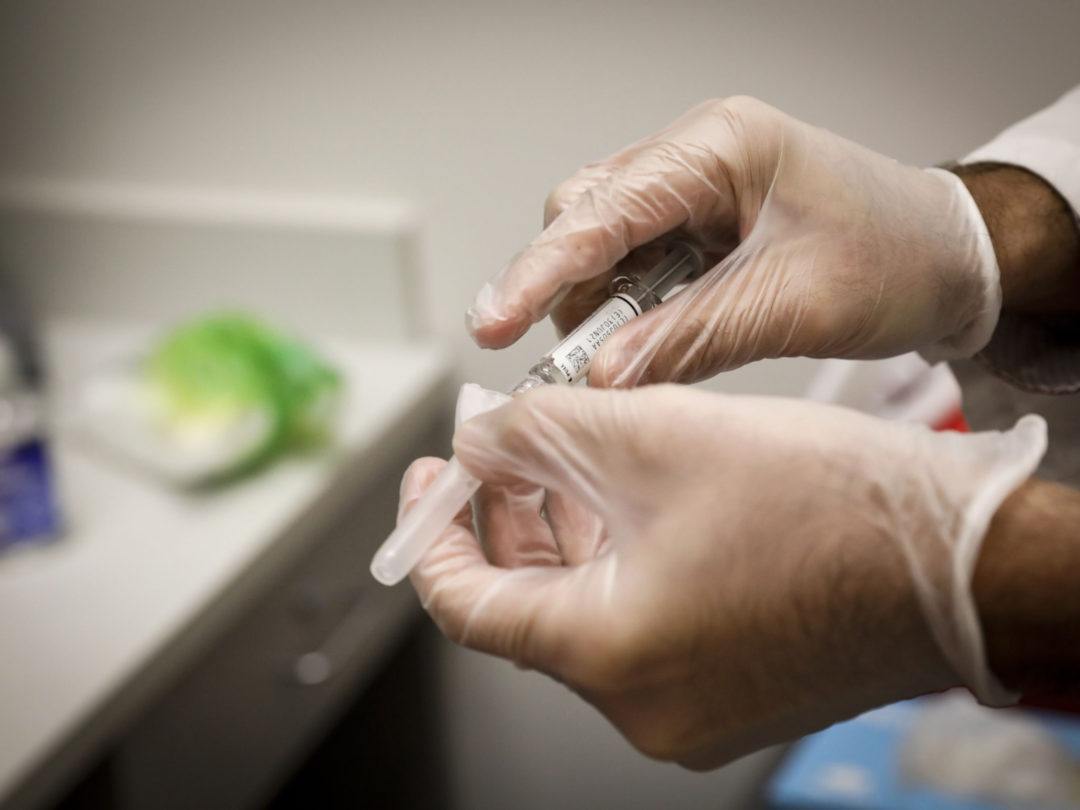
Visit Our Sponsors |
|
|
|
|
|
|
|
|
|
|
|
|
|
|
|
|
|
|
|
|
|
|
|
|
|
|
|
|
|
|
|
|
|
|
|
|
|
|

The European Union’s standoff with AstraZeneca Plc over delayed vaccine deliveries has widened, with Germany taking aim at U.S. export restrictions and signaling its backing for similar curbs.
German Chancellor Angela Merkel hinted at potential retaliation against the U.S. after her government called for a limit on exports of vaccines out of the bloc, adding to signs of ever more brutal competition for the life-saving shots.
European authorities are under increasing pressure as the bloc’s underwhelming inoculation campaigns threaten to prolong recession-inducing lockdowns. AstraZeneca, which is in the final stages of the EU approval process for its COVID-19 shot, became the focus of ire after the British drugmaker said deliveries to the bloc would be delayed due to production issues.
Germany’s health minister proposed an export limitation for vaccines produced in the EU, and Merkel followed up, saying the bloc might need to respond to U.S. efforts to restrict vaccine trade.
“The U.S. has a war act in force on the export of vaccines, and in some cases on important supplies for vaccines,” Merkel said Tuesday in a virtual address to the World Economic Forum. “That will trigger our basic instincts in Europe to say: if you’re missing anything you need in your supply chain for drugs or vaccines, you will take a look at home and make sure you get that sorted.”
The EU, which has had nearly 18 million coronavirus infections, lags well behind the U.K. and the U.S. in vaccinations. Even Denmark, the bloc’s leader, has given only 3.6 shots per 100 people, about one-third the rate in Britain and half of the U.S. pace. Bigger EU countries are further behind, with Germany at 2.1 shots per 100 people.
The European Commission says AstraZeneca’s delay would mean significantly fewer deliveries this quarter than previously agreed and responded by proposing that drugmakers flag any future exports of their COVID-19 shots in advance. The setback follows Pfizer Inc.’s announcement this month that supplies from a Belgian factory would be temporarily reduced because of work to upgrade capacity.
“Europe invested billions to help develop the world‘s first COVID-19 vaccines,” European Commission President Ursula von der Leyen said to the World Economic Forum. “And now, the companies must deliver. They must honor their obligations.”
Alongside the delivery standoff, AstraZeneca was forced to defend its shot, dismissing a German newspaper report that its vaccine is only effective for 8% for people older than 65.
A report by Handelsblatt late Monday, which cited unidentified sources in Germany’s ruling coalition, is “completely incorrect,” an AstraZeneca spokesman said.
Germany’s health ministry also rejected the report, saying that the newspaper appears to have confused the fact that around 8% of the test subjects were between 56 and 69 years old, and only 3% to 4% were over 70, which isn’t the same as efficacy.
The European Medicines Agency, which started a meeting to review the data on Monday, is expected to decide on whether to approve the vaccine as early as this week. The EU’s drugs regulator said it could issue a positive recommendation for the AstraZeneca shot on Friday.
British Warning
The U.K., which has already authorized its use, warned the EU against engaging in “vaccine nationalism.”
“I have every confidence we will get our deliveries as scheduled,” Nadhim Zahawi, Britain’s vaccine minister, said Tuesday on LBC Radio, responding to the EU’s proposal, which could disrupt links to Pfizer’s facility in Belgium.
The commission’s proposal for a “transparency mechanism” to flag vaccine exports in advance, doesn’t go as far as Germany’s apparent push for export limits, adding to signs of confusion among the EU’s top brass about the next steps. The bloc has planned another meeting with Astra on Wednesday in a last-ditch effort to resolve the standoff.
“We’re not planning to impose an export ban or export restrictions,” EU Trade Commissioner Valdis Dombrovskis told reporters on Tuesday in Brussels. “Primarily, it’s a matter of transparency on the deliveries.”
A meeting between the EU and Astra on Monday ended in disagreement. The company offered to boost its EU vaccine deliveries for February, without committing to figures for March, according to a government official familiar with the discussion.
‘Maximum Pressure’
“It is totally unacceptable that we can’t get answers and can’t get deliveries on vaccines that have been agreed,” Denmark’s Health Minister Magnus Heunicke said in an interview with broadcaster TV2. “It is crucial that the EU puts maximum pressure on vaccine manufacturers.”
With a string of bad news delaying a return to normality, EU governments are eager to dodge the blame. Last week, a group of leaders vented at the EMA over what they said is a slow process for approving vaccines, while others have accused the commission of failing to secure sufficient doses early enough on behalf of member states.
Rather than easing restrictions, EU countries are preparing longer and stricter lockdowns, amid persistent flare ups in infections across the continent. The commission proposed Monday further curbs on travel and a reinforcement of stay-at-home measures.
The measures have triggered a growing backlash against authorities. The Netherlands faced its worst civil unrest in four decades after a third night of rioting against a government curfew.
RELATED CONTENT
RELATED VIDEOS
Timely, incisive articles delivered directly to your inbox.






